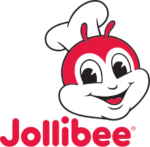Jollibee Food Corporation
Faced with the opportunity to promote rural development while meeting its daily need for raw ingredients, the largest food service company in the Philippines is making small farmers active participants of its supply chain. Currently, 25 per cent of JFC’s daily need of raw vegetables is met by these smallholder suppliers who are committed to comply with JFC’s quality standards. In return, JFC guarantees the purchase of pre-defined quantities of crop products, ensuring a stable source of income for the farmers. Through the ‘Farmer Entrepreneurship Program’ (FEP) set up by the group’s foundation, small-scale farmers receive education and structured vocational training in farming to help them become more productive and profitable. In addition, the program provides farmers with access to institutional markets, thereby creating additional economic opportunities. Since 2008, the program has partnered with 85 local institutions to train and develop more than 1,800 farmers from 15 provinces nationwide. Find out more.
Manila Water Company, Inc.
Manila Water Company, Inc. is the exclusive provider of water and used water services to over six million people in the Manila Water Concession, particularly the East Zone of Metro Manila and Rizal Province. It’s inclusive business model, Tubig Para Sa Barangay (TPSB) partners with local governments units, NGOs and communities to design and implement water supply systems for underserved low-income households to access safe, reliable and affordable drinking water. Since 1997, some 1.8million people from marginalized communities have benefitted from the program. The company first turned a profit in 2001 and has grown steadily ever since, proving that inclusive business can enjoy huge commercial success. Find out more.


















